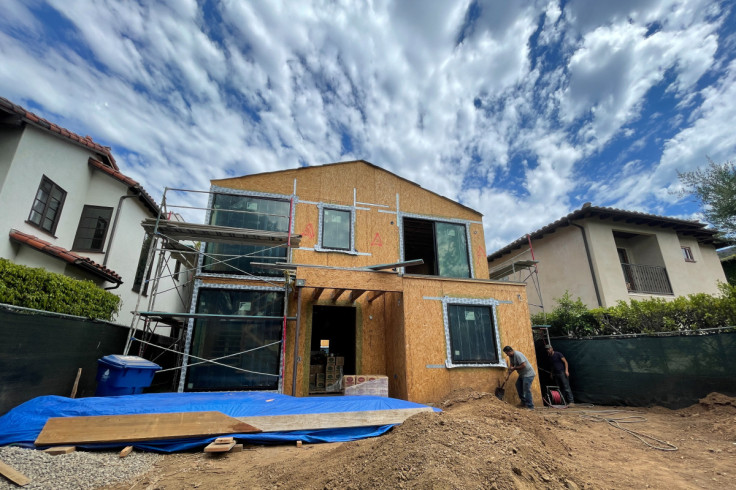U.S. Home Prices To Fall 4.5% In 2023 Despite Higher Rates: Reuters Poll

U.S. home prices are forecast to decline modestly this year and by less than previously thought as demand has declined only slightly despite expectations that interest rates have further to rise, according to property analysts polled by Reuters.
Normally interest rate-sensitive home prices have only fallen about 6% from their recent peak, although the Federal Reserve is expected to deliver at least two more rate hikes, having already raised its key interest rate by 450 basis points from near-zero in just a year.
The decline has hardly dented a market, following a surge of more than 45% in average house prices since 2020 as buyers rushed in to avoid missing out, while people who could not afford to buy have been left paying higher rents.
Mortgage rates had been broadly declining since October but resumed their ascent in recent weeks on expectations the Fed will keep its federal funds rate higher for longer. But the latest housing data points to renewed strength in activity.
The poll of 29 analysts, conducted between Feb. 15 and March 2, forecast average home prices based on the Case/Shiller index, which rose around 6% last year, were forecast to decline 4.5% in 2023, followed by no increase in 2024. That is slightly less than the 5.6% fall predicted three months ago.
They are expected to fall 10% from peak to trough, less than one-third of the slump during the 2007-08 global financial crisis (GFC), and also slightly milder than the 12% in a poll published in December.
"Buyers are ready to get back into the market. However, volatile mortgage rates, which had dropped in January, encouraging sales activity, will continue to pose affordability challenges, limiting demand," said Crystal Sunbury, senior real estate analyst at RSM, a U.S.-based consulting firm.
While house prices probably had a bit further to fall, an overall housing shortage will broadly support these historically-elevated levels, Sunbury said.
Indeed, the U.S. outlook was a bit more optimistic than other similar housing markets, like Canada and Australia, which are set to mark bigger falls this year.
Although over 60% of analysts, 16 of 25, said purchasing affordability would improve over the coming year, they were split on how home ownership would change in the next two to three years. While 13 said it would decrease, 12 said it would increase.
"There are growing signs stretched affordability is weighing on home ownership, particularly for those (aged) under 35. We expect this to persist in the coming quarters," said Sam Hall, property economist at Capital Economics.
"We don't think affordability will return to its post-GFC levels or even its pre-pandemic average in the coming years."
The 30-year fixed mortgage rate, currently at 6.5%, will average 6.35% this year, the poll found.
As owning a home looks to be a distant dream for many, especially for those who have not seen such high rates in their lifetime, rents are also climbing.
Rental price inflation, one of the primary reasons overall inflation has remained sticky, will average 2.1% this year and surpass core inflation in 2024 and 2025, the survey showed.
(For other stories from the Reuters quarterly housing market polls:)
© Copyright Thomson Reuters {{Year}}. All rights reserved.




















